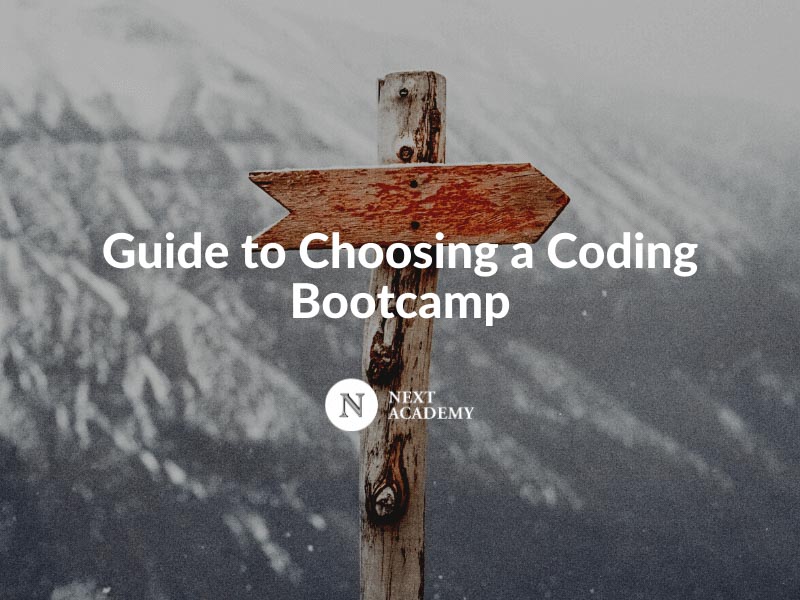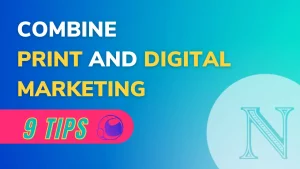What is a coding bootcamp?
A coding bootcamp is an intensive and accelerated learning programme that teaches beginners the essence of coding. Most bootcamps, like ours, start with an introduction to web development, after which the programme will go into a higher gear. Within ten weeks, participants of the coding bootcamp will be able to build web applications themselves and possibly, even more complicated applications.
Coding bootcamp vs. College degree
Before people join a coding bootcamp, a question most have is whether they are actually capable of getting a job in the tech industry without the right papers. Their question is more than justified. So, here are five things to consider when choosing between a coding bootcamp or a college degree:
- Costs: although a coding bootcamp can be quite expensive (some even go up to $10,000 or more), it is still less – or equivalent to – than a semester at a university. Regardless of your choice, the average starting salary is relatively high compared to a job which is not in tech.
- Return on investment: if you choose for a coding bootcamp, you have the same earnings potential as a post-graduate, but within less time and with less money being spent.
- Time: an average college degree takes up to four years to complete, while a coding bootcamp can be finished within three to four months.
- Curriculum: there is no doubt that for in-depth knowledge of computer systems, coding and everything in between, a college degree is the best option. However, if you want to dive right into a coding language, then a coding bootcamp should be your preferred choice.
- Career outlook: both a coding bootcamp and a college degree will get you a high-paying job, even as a junior developer. Technology is everywhere nowadays, and most things around us are built and maintained with code. A consideration could be that you want to start your own company, then a coding bootcamp is the right choice for you, as you will get a good command of several coding languages which you can directly put to use. In retrospect to a college degree, where everything will be taught in a less time-efficient manner.
Can I learn how to code on my own?
Yes, you can learn how to code on your own! In fact, we wrote an article about learning to code by yourself. And for FREE!
We know time is valuable, therefore we have listed some key points from that article down here:
- Start: if you think you are ready to start learning how to code, you should just start. That is the best way to start learning. Begin with basic coding exercises to train your brain. Write lines and lines of code and have your code checked by more experienced software developers.
- Quantity over quality (this time): when you first start out with coding, it is important to write a lot of code. At first, quantity is more important than quality. Because when you write a lot of code, you automatically learn. And then, the more you write, the better the quality gets.
- Find a mentor: if the going gets tough, consider looking for a mentor. The senior developer will be happy to help you, as he or she has gone through the same process as you.
- Allow yourself a break: it’s not healthy for you to write code every single minute of the day. When you feel a headache coming up, or if you get stuck and don’t know how to proceed, simply step away from your screen and take a break. This break will reset your mind and will also allow you to think more clearly about the possible error in the code.
Am I suitable for a coding bootcamp?
Before you join a coding bootcamp, it is important to understand that you need certain skills and a winner’s mindset. If you do not, chances are you won’t make it until the end. Willingness and dedication are important factors. A bootcamp is only two to three months and during those months, you will need to learn most of the things that a bachelor student learns in three to four years. Day in and day out, you code every single day. That is how you learn coding. Therefore, willingness corresponds with the duration of the coding bootcamp. You have to be willing to sacrifice almost a quarter of a year to coding alone.
As for dedication, if you don’t participate in class and fail to show up in class at all, you will have a hard time. But luckily, you have the right mindset, otherwise you wouldn’t be here. Right?
Then there are the actual skills you need. Here are three big ones:
- Problem-solving skills: when you write code, a lot can go wrong. And if you do not know where you made a mistake after you ran your code, it’ll be difficult to trace the it. Thus, you must be able to solve problems efficiently. In addition, you want to have logical reasoning skills. That will help with the problem-solving in general.
- Interpersonal skills: this basically comes down to how good you are with other people. Because 99% of the time, you’ll be working together with your fellow bootcamp students. While it may seem that coders are loners, the opposite is true.
- Interview assessment: some coding schools may ask you to perform a certain task or solve a certain problem in order to know whether you fit the program and vice versa.
Perhaps the term problem-solving sounds weird or vague to you. Or you know that you’re not the best at solving problems. Don’t worry! Many students participate in a coding bootcamp and will learn the skills the fix errors along the way.
It’s beneficial if you’re already good at it. If you’re not, you’ll learn it by doing.
What types of bootcamps are there?
When you decide to join a coding bootcamp, there still something else you should think about. That is whether you do an immersive bootcamp, a part-time bootcamp or an online bootcamp.
Understandably, each of the options has its pros and cons. Immersive may be interesting if you just graduated, whereas part-time is interesting when you want to make a career switch, but you can’t leave your job yet. If you really don’t have a lot of time but still want to learn how to code, you can choose to join an online bootcamp.
Usually, an online bootcamp has mentors that provide actual feedback on the stuff you’re doing. This may be on a daily basis or a weekly basis.
Whichever of the three you choose, choose carefully, for each one is different. Here are some things to keep in mind when choosing between either of the three:
- An immersive (or full time) bootcamp is very intense, requires day to day attention, discipline and hard work. Immersive bootcamps are not suitable for those who still have a job. (We strongly recommend to not quit a job upon partaking in a full time bootcamp.
- A part time bootcamp may allow you to work alongside, or go to school, but do keep in mind that hard work is still required. Practicing on a consistent basis is the key to success. Working alongisde it is more than fine, but do keep up with what you learned that day (or the day before).
- An online bootcamp also requires a lot of discipline, as you’re working towards a goal all by yourself. Unless you have someone else to motivate you, you’re in it alone. Therefore, we suggest you choose for an online course if you know you can work alone and can perform even though nobody’s there to cheer for you.
What to expect from an intake interview?
Note: an intake interview does only take place when you take part in the Full Time Full Stack Web Development Bootcamp.
When you apply for a coding bootcamp, it could well be that they want to test your skills first and get to know you as a person. Therefore, a written and/or video application is common, and you should anticipate to either write a letter or make a video.
Then there’s the technical part. Coding bootcamps are difficult. It is logical that the school itself doesn’t want you to lack behind in class because of insufficient knowledge. From your perspective, it would be a waste of money if you joined a coding bootcamp that isn’t a perfect fit. Thus, most interviews and applications include an assessment which oftentimes also includes coding and/or solving a certain problem.
How do I get a job after the bootcamp?
Everyone who joins a coding bootcamp has an end-goal in mind (if you don’t, you should ask yourself why you want to join a coding bootcamp). For most, this goal is a job. People who join include post-grads, job seekers and career switchers.
Because the technology industry is so popular, organizations like to pick the best and brightest. They oftentimes work together with coding schools to hire them after they finish the bootcamp.
To help you find a job, most coding schools set up programs (like the Industry Placement Programme of NEXT Academy) that help them brush their CV and learn how to prepare a job interview. There is, of course, not a 100% job-guarantee. But with all the efforts, chances are you have a (new) job in no time.
Conclusion
Now that you know everything about coding bootcamps, it is time to decide whether you think you’re ready for one. When it comes to choosing a coding bootcamp, a lot of factors are involved. For most people, however, time is the most important one. Are you able to dedicate months on end to coding? Then a bootcamp may be the best thing for you. But if you are not, then a part-time or online coding bootcamp is the solution.
At NEXT Academy, we offer the best of all words. You can choose for an immersive ten-week coding bootcamp, a part-time variant for the busier people amongst us or an online coding bootcamp for those who are still really stuck to their current job.
Do you want to make the career switch of your life? Head over to our website https://nextmy.co/code and learn more about our industry-leading coding quantum degrees!
Whichever you may choose, we wish you good luck on your future coding endeavours.
-
Josh Tenghttps://www.nextacademy.com/author/josh/
-
Josh Tenghttps://www.nextacademy.com/author/josh/
-
Josh Tenghttps://www.nextacademy.com/author/josh/
-
Josh Tenghttps://www.nextacademy.com/author/josh/
 What We Have Done |
What We Have Done | 


